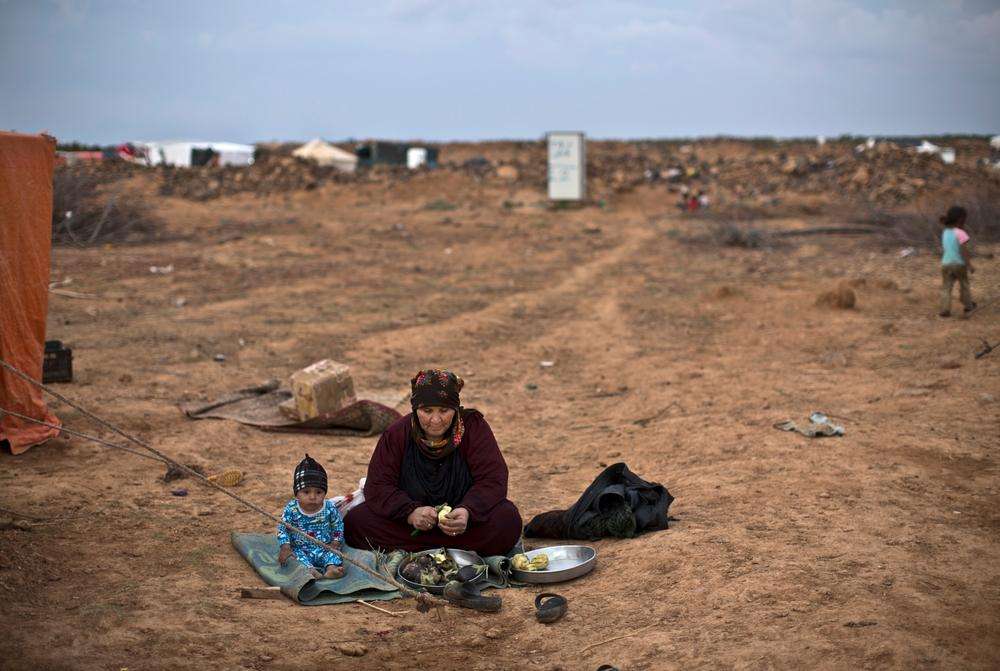Amman, Jordan—About 60,000 people trying to flee Syria are trapped without aid in extremely harsh conditions near Jordan’s northeastern border, the international medical humanitarian organization Doctors Without Borders/Médecins Sans Frontières (MSF) said today, calling for an immediate resumption of humanitarian assistance and international efforts to protect and relocate this population. [Editor's note: the number has since risen to 75,000].
Read the New York Times Op-Ed: Save the Refugees on the Berm
In the wake of a suicide attack on a nearby military post on June 21, which killed seven Jordanians and injured 14 others, no food or medical assistance—and only extremely limited water—have reached the people who have gathered in a large informal camp in an area known as the “berm.” MSF ran a mobile health clinic for people trapped at the berm before it was forced to suspend its activities following the attack.
“These people—more than 50 percent of whom are children—desperately need the immediate resumption of the provision of food, water and medical care,” said Benoit De Gryse, MSF’s operations manager. “This cannot wait.”
“But assistance alone is not enough,” De Gryse continued. “People fleeing war should be offered international protection and a safe place to relocate. Neither Syria nor the border are safe today. This is a collective responsibility and a massive failure of the international community. Jordan cannot be left alone to deal with the fallout of the war in Syria. There are plenty of countries both in and outside the region who should also step up to offer a safe place for refugees.”
Syrians in Their Own Words: Voices from the "Berm"
MSF provided treatment to a total of 3,501 people since it started running a mobile clinic at the berm on May 16. The main illnesses seen by the MSF teams were skin diseases, diarrhea and malnutrition.
Of the 1,300 children under five years old screened for malnutrition, 204 suffered from moderate malnutrition and 10 had severe malnutrition. In addition, 24.7 percent of the children seen by MSF medical teams had acute diarrhea. The teams carried out 450 consultations for pregnant women and delivered one baby.
“Conditions before the suspension of aid were extremely harsh, and many of the patients our teams treated told us they had moved to this extremely inhospitable area because of the high levels of violence and insecurity they were living through,” said De Gryse. “The idea that there are safe zones in Syria they can return to is nonsense. This is not an option. Neither is staying at the berm—the area is not safe for anyone, much less thousands of women and children. States with the capacity to help should not turn their backs. They need to step up and offer asylum to refugees today.”




